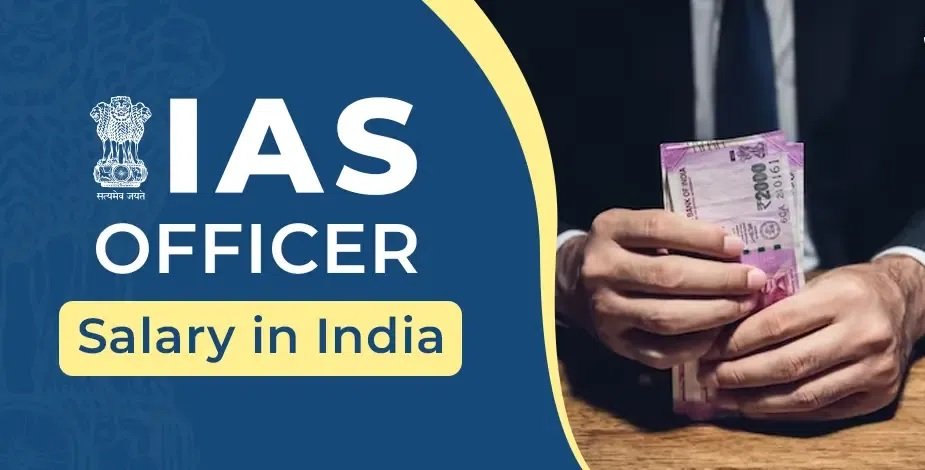The Indian Administrative Service (IAS) is one of the most prestigious and sought-after career paths in India. Serving in this esteemed position not only provides immense respect and power but also comes with attractive financial perks and benefits. While the salary of an IAS officer varies with rank, seniority, and location, one question that often arises is how much an IAS Salary After 5 Years in India into their career.
This article delves into the IAS salary structure after 5 years of service, exploring the key components that contribute to the overall income and how the salary increases as officers move up the ranks.
Overview of IAS Salary Structure
The salary of an IAS officer is primarily determined by the Pay Commission recommendations, which are reviewed and updated periodically. Currently, IAS officers are paid according to the 7th Pay Commission guidelines. These guidelines specify a basic pay, grade pay, and other allowances.
Here’s a breakdown of the different factors that affect the salary of an IAS officer:
- Basic Pay
- Grade Pay
- Allowances (DA, HRA, TA, etc.)
- Perks and Benefits
- Pension and Retirement Benefits
The salary grows as an officer progresses through the various levels of the administrative hierarchy.
Initial Salary and Growth
IAS Officer Salary During Training
When an IAS officer enters the service, they are initially appointed as Junior Scale Officers after completing their training at the Lal Bahadur Shastri National Academy of Administration (LBSNAA). During the training period, the officer receives a salary that is consistent with the Basic Pay for this entry-level position, which is generally around Rs. 56,100 per month. However, this salary can vary depending on the location and pay band.
First Posting and Salary Growth
After completing the training, the IAS officer is posted to a district or a state. During the first five years, the officer is usually in the Junior Time Scale (JTS), which corresponds to Pay Band 3. As per the 7th Pay Commission, the Basic Salary in the Junior Time Scale is Rs. 56,100 per month, but the salary increases through increments as they serve longer.
Over these five years, the officer’s salary will rise significantly through annual increments.
IAS Salary After 5 Years in India
Basic Salary
After completing five years of service, IAS officers are usually promoted to the Senior Time Scale (STS), which corresponds to Pay Band 3 and a basic pay ranging from Rs. 67,700 to Rs. 79,800 per month, depending on the exact rank and experience.
As per the 7th Pay Commission structure, after five years, the IAS officer’s Basic Salary is generally Rs. 67,700 per month, with a Grade Pay of Rs. 6,600. This salary can vary based on the city of posting, promotions, and the officer’s performance.
Allowances
The salary structure for an IAS officer includes several allowances that significantly boost their take-home pay. Some of the common allowances include:
- Dearness Allowance (DA): This is provided to offset the impact of inflation. DA is generally a percentage of the basic salary and is revised regularly. Currently, DA for government employees is around 42% of basic pay.
- House Rent Allowance (HRA): Depending on the city, IAS officers receive an HRA of 8% to 24% of their basic pay. For example, in metro cities like Delhi, HRA is higher due to the cost of living.
- Travel Allowance (TA): IAS officers are entitled to TA based on the nature of their duties and their posting location.
- Special Allowances: Depending on their assignment, officers may receive additional allowances for working in difficult areas.
After five years of service, an IAS officer’s total monthly salary, including allowances, can range from Rs. 85,000 to Rs. 1,20,000. This depends on the location of posting, city allowances, and the officer’s experience.
Perks and Benefits
In addition to the salary, IAS officers are entitled to several perks and benefits:
- Official Residence: Most IAS officers are provided with government accommodation or a housing allowance.
- Official Vehicles: Many officers are provided with official vehicles, including security vehicles.
- Medical Facilities: Officers and their families are entitled to medical benefits under government schemes.
- Pension and Gratuity: After retirement, IAS officers are eligible for substantial pension benefits, which increase based on their years of service.
IAS Salary at Senior Levels
Promotion and Salary Growth
As an IAS officer continues their service, they receive promotions to higher ranks, including Selection Grade, Super Time Scale, and eventually Apex Scale. These promotions are typically awarded based on seniority, merit, and availability of positions.
- In the Selection Grade, which comes after 15 years of service, the salary is generally Rs. 1,31,100 per month.
- In the Super Time Scale, which is achieved after 20 years of service, the salary can rise up to Rs. 1,44,200 per month.
- The highest rank, the Apex Scale, comes after 30 years of service, with a salary reaching Rs. 2,25,000 per month, along with additional perks.
Additional Income Sources
IAS officers may also earn income through additional avenues such as:
- Post-retirement positions: After retirement, many IAS officers take up roles in public sector undertakings (PSUs), universities, or private sector firms as consultants or advisors, further boosting their income.
- Books and Publications: Some senior officers write books or publish works based on their experiences, which can be another source of income.
Finally To Sum Up
The salary of an IAS officer after 5 years of service is quite lucrative, reflecting the growing responsibilities and status of the officer. Basic pay increases, alongside allowances like DA, HRA, and TA, contributing to a significant total monthly salary. Furthermore, the perks and retirement benefits ensure long-term financial security for IAS officers.
Given the additional benefits, promotions, and opportunities for extra income through consultancy or post-retirement positions, becoming an IAS officer proves to be a highly rewarding career not just in terms of status and respect, but also in terms of financial security.
